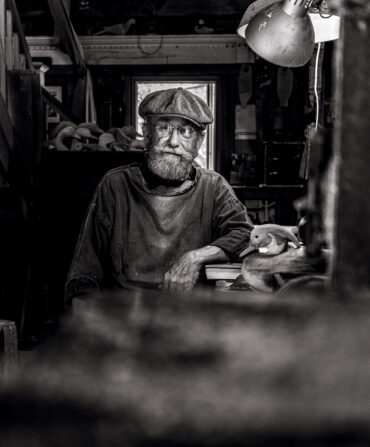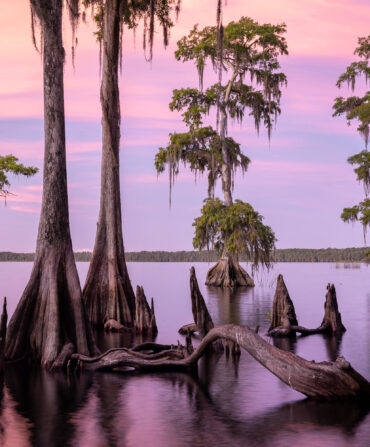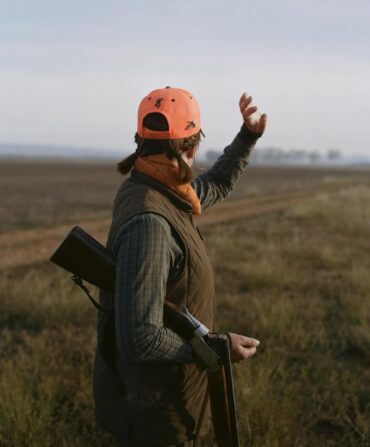Sporting South
Finest Afield
When quail season winds down, an elite group of handlers who keep the bird dogs on point in the famed Red Hills hold a friendly competition to see who has the top dog
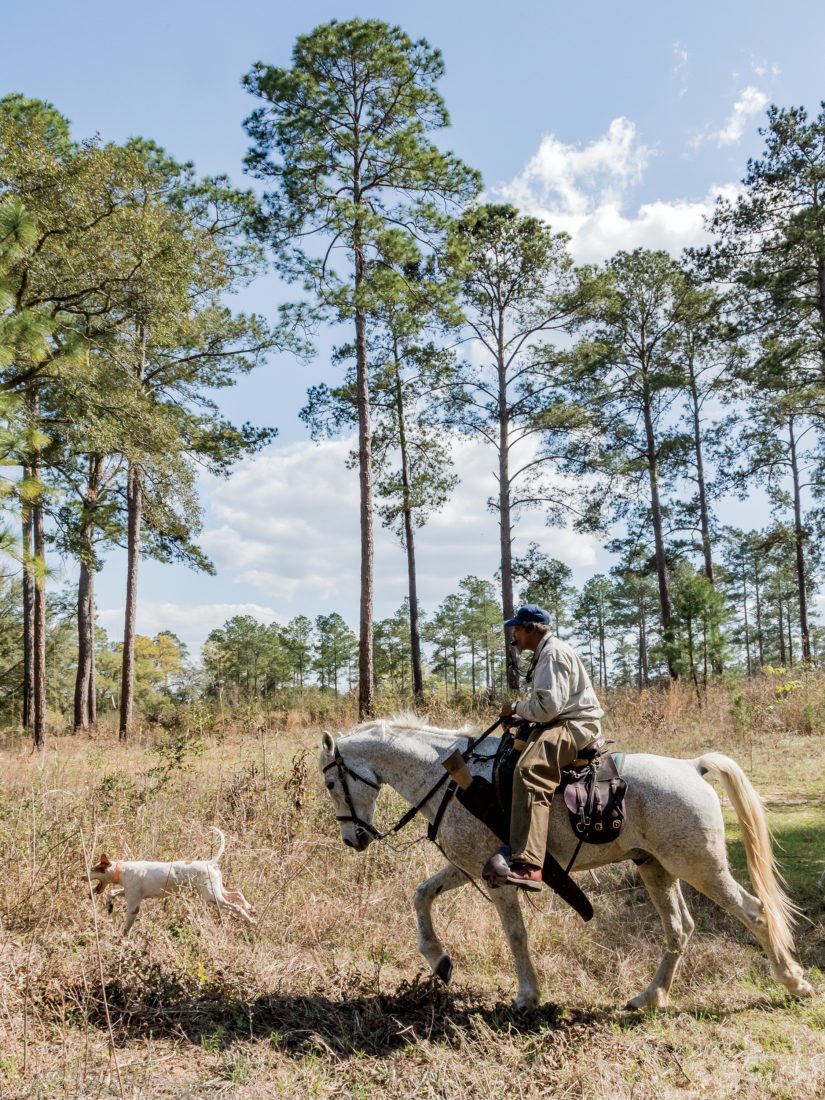
Photo: Peter Frank Edwards
For the past thirty-seven years, a ritual has played out in the vaunted Red Hills region between Tallahassee, Florida, and Thomasville, Georgia, where more than a hundred private quail-hunting plantations spread across three hundred thousand acres. The close of quail season brings the annual field trial of the Georgia-Florida Shooting Dog Handlers Club, a group of thirty-six African American trainers and handlers who are carrying on a generations-old tradition of guiding dogs and hunters alike through pine forests protected by conservation easements.
Neal Carter, Jr., who is sixty-five and one of the club’s founders, has served as its president for the past decade. He works at Sinkola Plantation, where his father worked before him, and comes from a long line of Red Hills dog handlers, a heritage he shares with many of the club’s other members.
After the Civil War, Gilded Age industrialists purchased and renovated a number of the former Red Hills plantations, turning them into extravagant winter getaways. To rival the British estates celebrated for regal game-bird hunts, the plantation arrivistes answered with their own spectacular quail hunts from horseback and custom mule-drawn wagons. Former slaves in the area obtained jobs as bird-dog handlers and trainers, wagon drivers and guides. Generations later, Carter and other club veterans such as Willie Sims, Clinton Hutto, Harry Cromartie, Joe Fryson, and Willie Battles, Jr., will tell you how their grandfathers, fathers, and uncles who worked on the quail-hunting plantations passed down the fine art of training bird dogs. “I saw the older trainers doing it and thought that was the neatest thing in the world,” Sims says.
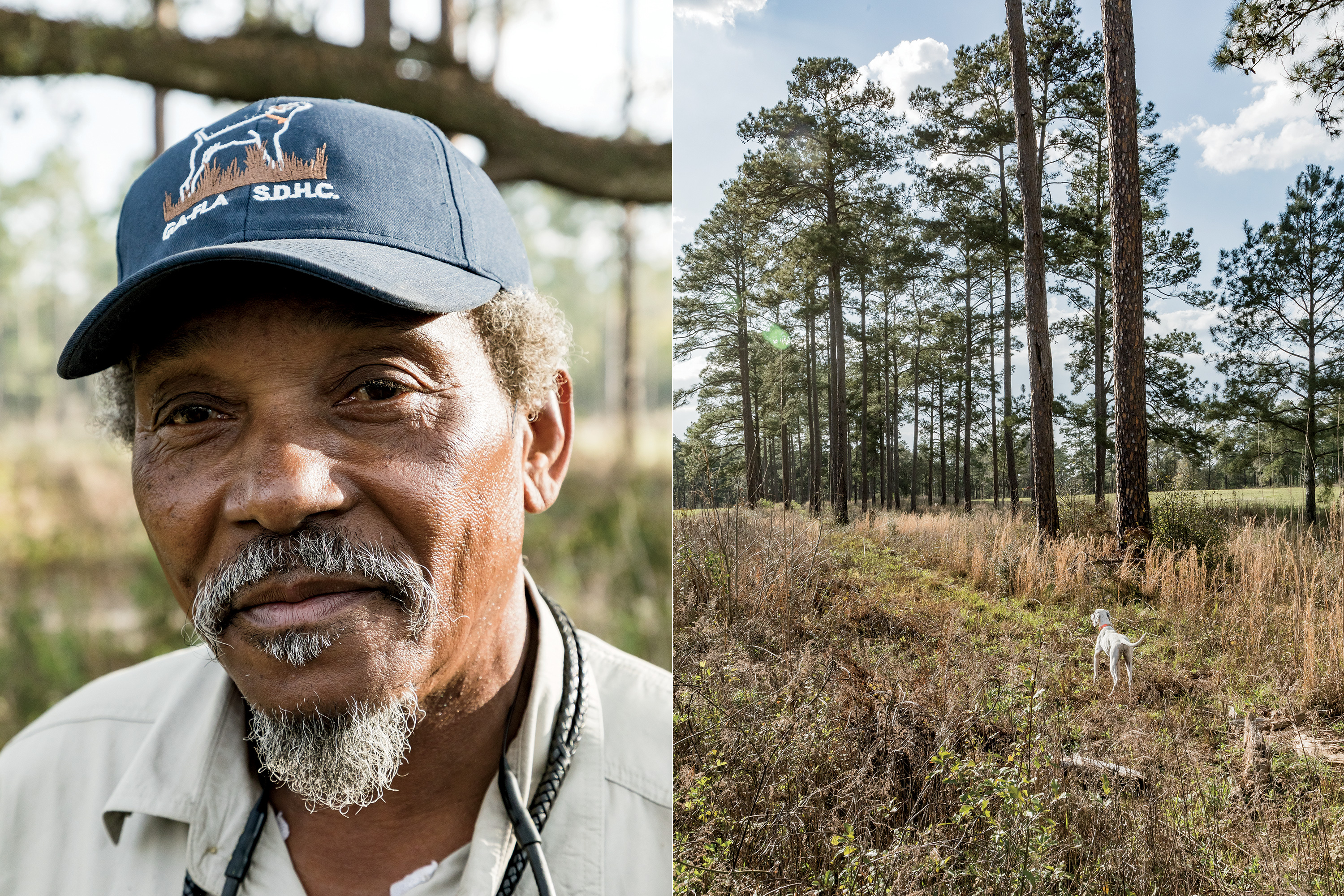
Photo: Peter Frank Edwards
Left to right: Carter has been the club’s president for the past decade; a dog on point during the trial.
As keepers of the flame, the tight-knit club members have become “like an extended family,” Hutto says. The field trial began in 1981 as a friendly though heated competition among handlers at the end of a hard-worked season. The club’s inaugural trial at Kelly Pond Plantation drew twenty-four competitors, with several of the neighboring plantations’ owners serving as judges and timekeepers in a tradition that continues today as the trial rotates through different plantations each year. But the trial is about more than just bragging rights. It has also become a way for the older members to showcase their know-how for a new generation interested in the profession, and perhaps teach the younger club members a thing or two, though sometimes it’s the other way around.
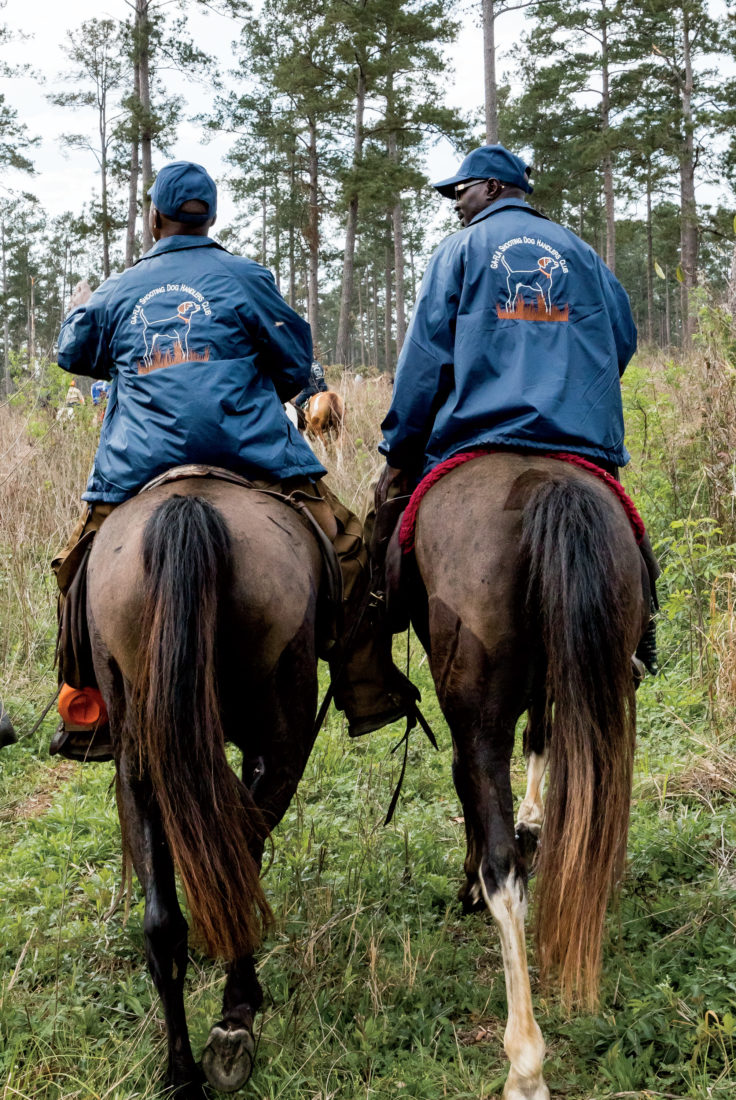
Photo: Peter Frank Edwards
Members on horseback display the club’s logo.
At last year’s trial, “three young guys beat us old fellas,” says Curtis Brooks, who works with his son, Curtis Brooks, Jr., on Tamathli Plantation. “We were excited about it, but us old guys have to start working harder.”
On a brilliant late-winter morning with temperatures rising toward the seventies, a procession of roughly a hundred horses and riders sets out across shady trails and sprawling meadows. Competitors are paired in two-man braces of thirty minutes. Judges rate dogs on the number of quail points, honoring (pointing without usurping the other dog’s point), and overall style. Soon, the woods resound with staccato chants of commands to far-ranging pointers, who circle and zigzag in response. A gallery of friends and family on horseback and in ATVs and pickups brings up the rear.
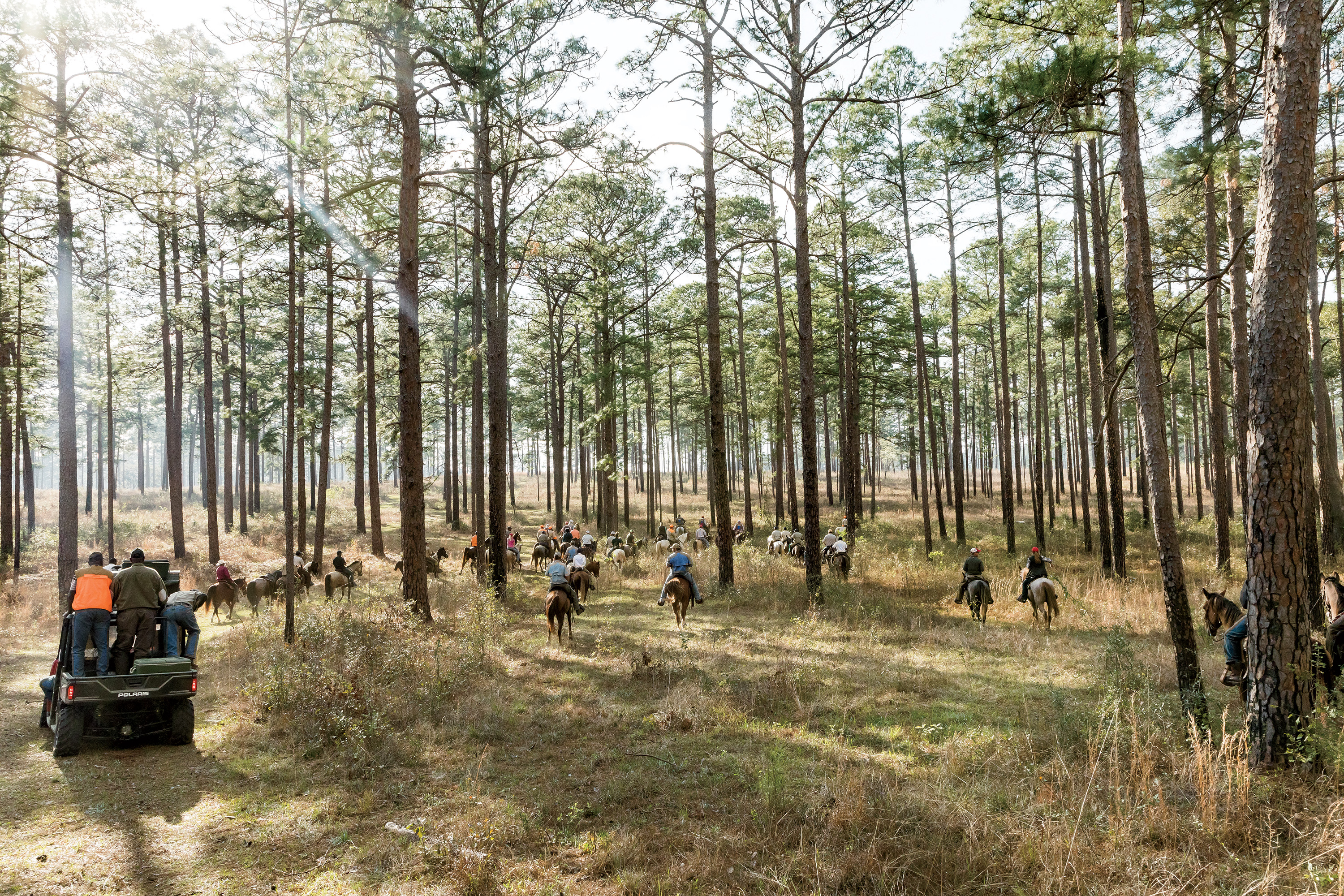
Photo: Peter Frank Edwards
A gallery of friends and family follows the handlers and dogs through the pines outside Thomasville, Georgia.
After lunch—a spread of barbecued chicken and ribs, with sides of collard greens, black-eyed peas, and yellow rice—it’s back to the horses as the competition continues late into the afternoon, with a bit of good-natured hazing along the way. “It’s honorable and fun, and we talk trash to one another,” Brooks says. “I just enjoy having a great day, and may the best man win.”
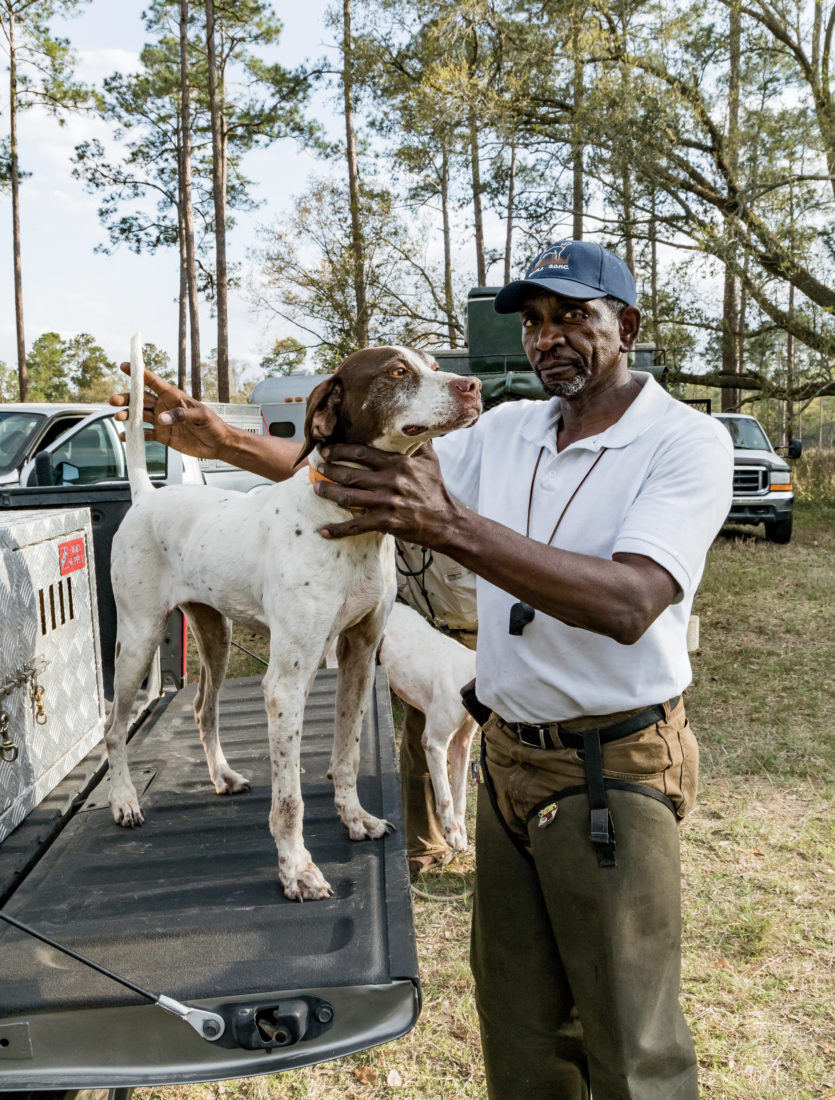
Photo: Peter Frank Edwards
Club member Curtis Brooks poses with his pointer Tamathli’s Fox during a break in the competition.
The declared winner this day of the first-place Governor’s Cup is a longtime ace, Aaron Parks, with his dog Deer Run Bee of Deer Run Plantation. With another season behind them, club members will already begin preparing for the next, working with the dogs throughout the year. In a few months, they’ll reconvene to start planning the 2018 trial.
“It was a good day,” Carter says. “Some of the young guys were handling their dogs really well. I’ve been doing this for thirty-seven years, and I always wanted it to be useful. It’s meant a lot to me. I’m just hoping we have more young people who want to do this, and that the trials help the young people who are coming up.”


